Features
Trust between two elites when financial discipline is lax
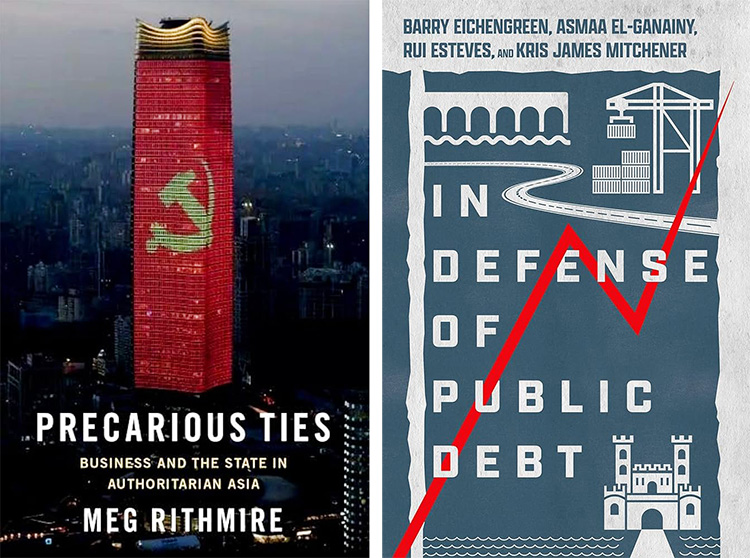
By Usvatte-aratchi
‘The executive of the modern state is nothing but a committee for managing the common affairs of the whole bourgeoisie.’ The Communist Manifesto (1848)
‘… where political and business elites are intertwined in corrupt dealings, each reliant on the other’s power for survival… the downfall of one party can drag the other down with it.’ Precarious Ties, …. Meg Rithmire (2023).
‘For Japan issuing public debt … colonial government bonds.’ In defence of public debt’, Barry Eichengreen and others (2023), p.75.
Meg Rithmire teaches at Harvard Business School. Her recent book, read in light of Marx’s deep insights in 1848, enables a clearer understanding of the volatile political situation in our country and several others. It is far superior to concepts like ‘crony capitalism’ and ‘state capture’ in understanding major political developments in some societies. Rithmire examines relations between political elites and business elites in Indonesia during the Suharto dispensation, in Malaysia during the Barisan Nasional Coalition, and in China in a recent period of growth. I am not equipped to comment on her work, as from where I live, access to the literature and discussions on the subject are entirely sparse. So far as reading is concerned, I live in a bit of a hellhole. I would rather make use of her conceptual models she builds to understand political alignments in our country. Furthemore, I am more than a bit uncomfortable using terms like elites and class, I guess, mainly because I am poorly read in those subjects. For the moment, let’s blunder along.
There is not much argument that our society smells foul with corruption, beyond high heavens, if they exist. There is ‘petty’ corruption perpetrated by those in lower levels of employment: policemen will overlook an offence when paid a small bribe to do so; a school principal will admit a student to Grade 7, because a friend of hers who works in another place asked her to do the latter a favour; and a clerk will speed up a file for final signature for a consideration. ‘Grand’ corruption is not only massive in size but also destructive of the functioning of the economy and society. Twenty percent of a $7 billion contract is $1.4 billion (Lkr.445 billion at 320 rupees to the dollar), a sum large enough, when well-managed, to maintain in luxury many sets of stupid offspring of powerful politicians. Multiply such bribes manifold over 10 years and you have the situation in Sri Lanka: a political ‘elite’ corrupt to the gills and a population with burdens of public debt, which condemns that economy to bankruptcy. The tragedy of that disaster is that the population did not understand the scale of the woeful fate that awaited them and repeatedly voted into office those same corrupt politicians. The irony of it is that those politicians walked comfortably into office in 2019 and 2020 on an ‘intellectuals’ way’ (viyath manga) carved for them by well-educated but impossibly gullible professionals. Ensconced well in power, those politicians drove the country into bankruptcy and the public into misery.
In our instance, this scale of ‘petty theft’ and ‘grand theft’ would not have been feasible without the connivance and active participation of public servants at high levels of authority and power. ‘Laxity in financial discipline’ is an inadequate ‘euphemism’ to explain the complicity of the ‘bureaucratic elite’ in the prevalence of corruption on the scale and in the length of time the phenomenon has prevailed in our society. That phrase falsely lulls us to the fancy that public service ‘elites’ looked on helpless while others committed day light robbery. Who prepared cash flow tables to estimate NPV to justify the feasibility of the Nelum Pokuna project or the Nelum Kuluna project or the Mattala airport or the broad highways (‘…where the deer and the buffalo play.’) in the Hambantota district? What was the rate of return in each? Who recommended to President Gotabaya Rajapaksa to reject the light rail project which was almost a gift from Japan but carried no opportunities for bribery? Surely, public servants and not ‘Mr. 20 percent’. The practice of hiring retired senior public servants to do the bidding of politicians was critically important for scams to continue. Wishes of powerful politicians in office to place those errant public servants in positions of authority prevailed over clear and emphatic verdicts of the Supreme Court. The contrast with public servants and politicians of an earlier time is far too purple to have missed the eye of sociologists, except that they preferred to wear pitch-dark glasses.
Borrowing is never a bad thing in itself (Forget about Polonius. Borrowing blesseth both the lender and the borrower, although it droppeth not as the gentle rain from heaven.) It is a critically important means of mobilising capital. Banks exist for that purpose. (There was a fine account of county banks in England that collected rural savings and moved them to cities in a book (written by Presnell(?) which I read in Peradeniya.) Most corporations and most governments, the world over, have borrowed to grow and both the lender and the borrower have been richer into the bargain. Banks have thrived on those practices. In our country, political ‘elites’ and business ‘elites’ borrow to rob and steal, the people; the borrowers’ enterprises wither but the borrowers lead princely lives. It is the inexorable logic of false entrepreneurs, who with the connivance of errant politicians, rob state banks. That sort of corruption prevails in connivance with business elites although much of the wealth stolen cannot be invested in the anemic private sector in our economy. The consequent outflows of wealth give rise to severe balance of payments crises. Lax financial discipline permitted – indeed facilitated – by public servants who share in the stolen wealth made sure that those guilty were not brought before courts of law. Law enforcement offices are yet to bring to trial any of the alleged perpetrators. The government in China has convicted dozens and executed some. The recent celebrated Supreme Court trial was not about corruption. No amount of legislation can help if there is laxity in their enforcement. Political elites and business elites have connived to manipulate government financial practices and procedures to rob and steal several billion rupees from the government treasury: the treasury bond scams 2015 and 2016 are classic incidents; the sugar tax imbroglio in 2020 is another; a large number of enterprises, who with the connivance and active participation of powerful politicians, borrowed billions of rupees from state-owned banks and let them run into bad loans is still another; and distilleries and other business units that refuse to pay assessed taxes (summing to billions of rupees) but are left to continue their illegal practices using that wealth, as powerful politicians protect them is a fourth set. The impending sale of state assets will create a few small-scale ‘oligarchs’ as earlier perestroika in the USSR laid the fertile soil on which mega oligarchs germinated and thrived.
Here is clear evidence of Rithmire’s proposition. The political elite survives and prospers because the business elite promotes and sustains them; economic elites exist and prosper because the political elite repays the compliment. If one falls, the other fails. When one is threatened, the other comes to prop up the ill-affected. Some sections of the bureaucracy (another elite?) enable these practices. There are early signs of a clearer alignment of forces on lines demarcated by Rithmire’s hypotheses. The current symbiosis, while promoting the good health and robustness of these elites and providing a semblance of stability, is inimical to the good health of the body politic and economy. The well-being of our society depends on the growth of its economy and not on the stability of the status quo. It is fair to seek stability in the short term but growth in the economy in the long term is always destabilising. A telling example is the recent migration of hundreds of millions of people from the countryside to work in factories in cities in China. The Communist Party in China has provided the stabilising glue. Beggars and highwaymen in early 19th century England were symptomatic of social instability. Western Movies are about opening lands in ‘the wild West’ in the US and belong in a time when populations moved West where law and order had yet to prevail.
In the US, in the 1920s, masses of people moved north to escape the ‘Dust Bowl,’ and the appalling poverty in the South, to seek fortunes in the booming motor car industry there. When a new stabilisation emerges with economic growth, new alignments of social forces come about.
Features
Trump’s Interregnum
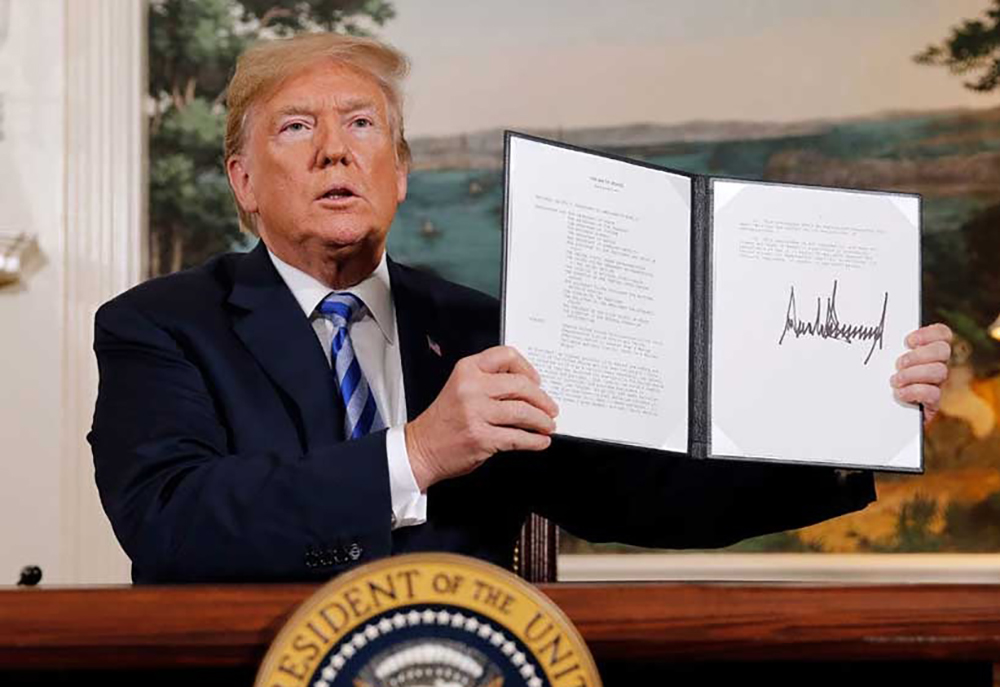
Trump is full of surprises; he is both leader and entertainer. Nearly nine hours into a long flight, a journey that had to U-turn over technical issues and embark on a new flight, Trump came straight to the Davos stage and spoke for nearly two hours without a sip of water. What he spoke about in Davos is another issue, but the way he stands and talks is unique in this 79-year-old man who is defining the world for the worse. Now Trump comes up with the Board of Peace, a ticket to membership that demands a one-billion-dollar entrance fee for permanent participation. It works, for how long nobody knows, but as long as Trump is there it might. Look at how many Muslim-majority and wealthy countries accepted: Saudi Arabia, Turkey, Egypt, Jordan, Qatar, Pakistan, Indonesia, and the United Arab Emirates are ready to be on board. Around 25–30 countries reportedly have already expressed the willingness to join.
The most interesting question, and one rarely asked by those who speak about Donald J. Trump, is how much he has earned during the first year of his second term. Liberal Democrats, authoritarian socialists, non-aligned misled-path walkers hail and hate him, but few look at the financial outcome of his politics. His wealth has increased by about three billion dollars, largely due to the crypto economy, which is why he pardoned the founder of Binance, the China-born Changpeng Zhao. “To be rich like hell,” is what Trump wanted. To fault line liberal democracy, Trump is the perfect example. What Trump is doing — dismantling the old façade of liberal democracy at the very moment it can no longer survive — is, in a way, a greater contribution to the West. But I still respect the West, because the West still has a handful of genuine scholars who do not dare to look in the mirror and accept the havoc their leaders created in the name of humanity.
Democracy in the Arab world was dismantled by the West. You may be surprised, but that is the fact. Elizabeth Thompson of American University, in her book How the West Stole Democracy from the Arabs, meticulously details how democracy was stolen from the Arabs. “No ruler, no matter how exalted, stood above the will of the nation,” she quotes Arab constitutional writing, adding that “the people are the source of all authority.” These are not the words of European revolutionaries, nor of post-war liberal philosophers; they were spoken, written and enacted in Syria in 1919–1920 by Arab parliamentarians, Islamic reformers and constitutionalists who believed democracy to be a universal right, not a Western possession. Members of the Syrian Arab Congress in Damascus, the elected assembly that drafted a democratic constitution declaring popular sovereignty — were dissolved by French colonial forces. That was the past; now, with the Board of Peace, the old remnants return in a new form.
Trump got one thing very clear among many others: Western liberal ideology is nothing but sophisticated doublespeak dressed in various forms. They go to West Asia, which they named the Middle East, and bomb Arabs; then they go to Myanmar and other places to protect Muslims from Buddhists. They go to Africa to “contribute” to livelihoods, while generations of people were ripped from their homeland, taken as slaves and sold.
How can Gramsci, whose 135th birth anniversary fell this week on 22 January, help us escape the present social-political quagmire? Gramsci was writing in prison under Mussolini’s fascist regime. He produced a body of work that is neither a manifesto nor a programme, but a theory of power that understands domination not only as coercion but as culture, civil society and the way people perceive their world. In the Prison Notebooks he wrote, “The crisis consists precisely in the fact that the old world is dying and the new cannot be born; in this interregnum a great variety of morbid phenomena appear.” This is not a metaphor. Gramsci was identifying the structural limbo that occurs when foundational certainties collapse but no viable alternative has yet emerged.
The relevance of this insight today cannot be overstated. We are living through overlapping crises: environmental collapse, fragmentation of political consensus, erosion of trust in institutions, the acceleration of automation and algorithmic governance that replaces judgment with calculation, and the rise of leaders who treat geopolitics as purely transactional. Slavoj Žižek, in his column last year, reminded us that the crisis is not temporary. The assumption that history’s forward momentum will automatically yield a better future is a dangerous delusion. Instead, the present is a battlefield where what we thought would be the new may itself contain the seeds of degeneration. Trump’s Board of Peace, with its one-billion-dollar gatekeeping model, embodies this condition: it claims to address global violence yet operates on transactional logic, prioritizing wealth over justice and promising reconstruction without clear mechanisms of accountability or inclusion beyond those with money.
Gramsci’s critique helps us see this for what it is: not a corrective to global disorder, but a reenactment of elite domination under a new mechanism. Gramsci did not believe domination could be maintained by force alone; he argued that in advanced societies power rests on gaining “the consent and the active participation of the great masses,” and that domination is sustained by “the intellectual and moral leadership” that turns the ruling class’s values into common sense. It is not coercion alone that sustains capitalism, but ideological consensus embedded in everyday institutions — family, education, media — that make the existing order appear normal and inevitable. Trump’s Board of Peace plays directly into this mode: styled as a peace-building institution, it gains legitimacy through performance and symbolic endorsement by diverse member states, while the deeper structures of inequality and global power imbalance remain untouched.
Worse, the Board’s structure, with contributions determining permanence, mimics the logic of a marketplace for geopolitical influence. It turns peace into a commodity, something to be purchased rather than fought for through sustained collective action addressing the root causes of conflict. But this is exactly what today’s democracies are doing behind the scenes while preaching rules-based order on the stage. In Gramsci’s terms, this is transformismo — the absorption of dissent into frameworks that neutralize radical content and preserve the status quo under new branding.
If we are to extract a path out of this impasse, we must recognize that the current quagmire is more than political theatre or the result of a flawed leader. It arises from a deeper collapse of hegemonic frameworks that once allowed societies to function with coherence. The old liberal order, with its faith in institutions and incremental reform, has lost its capacity to command loyalty. The new order struggling to be born has not yet articulated a compelling vision that unifies disparate struggles — ecological, economic, racial, cultural — into a coherent project of emancipation rather than fragmentation.
To confront Trump’s phenomenon as a portal — as Žižek suggests, a threshold through which history may either proceed to annihilation or re-emerge in a radically different form — is to grasp Gramsci’s insistence that politics is a struggle for meaning and direction, not merely for offices or policies. A Gramscian approach would not waste energy on denunciation alone; it would engage in building counter-hegemony — alternative institutions, discourses, and practices that lay the groundwork for new popular consent. It would link ecological justice to economic democracy, it would affirm the agency of ordinary people rather than treating them as passive subjects, and it would reject the commodification of peace.
Gramsci’s maxim “pessimism of the intellect, optimism of the will” captures this attitude precisely: clear-eyed recognition of how deep and persistent the crisis is, coupled with an unflinching commitment to action. In an age where AI and algorithmic governance threaten to redefine humanity’s relation to decision-making, where legitimacy is increasingly measured by currency flows rather than human welfare, Gramsci offers not a simple answer but a framework to understand why the old certainties have crumbled and how the new might still be forged through collective effort. The problem is not the lack of theory or insight; it is the absence of a political subject capable of turning analysis into a sustained force for transformation. Without a new form of organized will, the interregnum will continue, and the world will remain trapped between the decay of the old and the absence of the new.
by Nilantha Ilangamuwa ✍️
Features
India, middle powers and the emerging global order
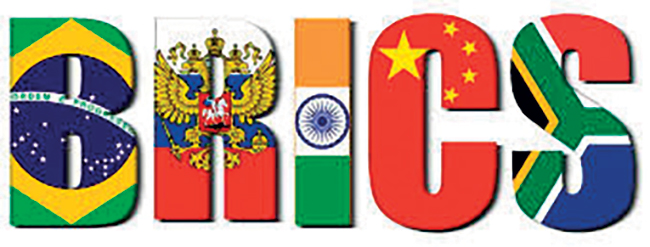
Designed by the victors and led by the US, its institutions — from the United Nations system to Bretton Woods — were shaped to preserve western strategic and economic primacy. Yet despite their self-serving elements, these arrangements helped maintain a degree of global stability, predictability and prosperity for nearly eight decades. That order is now under strain.
This was evident even at Davos, where US President Donald Trump — despite deep differences with most western allies — framed western power and prosperity as the product of a shared and “very special” culture, which he argued must be defended and strengthened. The emphasis on cultural inheritance, rather than shared rules or institutions, underscored how far the language of the old order has shifted.
As China’s rise accelerates and Russia grows more assertive, the US appears increasingly sceptical of the very system it once championed. Convinced that multilateral institutions constrain American freedom of action, and that allies have grown complacent under the security umbrella, Washington has begun to prioritise disruption over adaptation — seeking to reassert supremacy before its relative advantage diminishes further.
What remains unclear is what vision, if any, the US has for a successor order. Beyond a narrowly transactional pursuit of advantage, there is little articulation of a coherent alternative framework capable of delivering stability in a multipolar world.
The emerging great powers have not yet filled this void. India and China, despite their growing global weight and civilisational depth, have largely responded tactically to the erosion of the old order rather than advancing a compelling new one. Much of their diplomacy has focused on navigating uncertainty, rather than shaping the terms of a future settlement. Traditional middle powers — Japan, Germany, Australia, Canada and others — have also tended to react rather than lead. Even legacy great powers such as the United Kingdom and France, though still relevant, appear constrained by alliance dependencies and domestic pressures.
st Asia, countries such as Saudi Arabia and the UAE have begun to pursue more autonomous foreign policies, redefining their regional and global roles. The broader pattern is unmistakable. The international system is drifting toward fragmentation and narrow transactionalism, with diminishing regard for shared norms or institutional restraint.
Recent precedents in global diplomacy suggest a future in which arrangements are episodic and power-driven. Long before Thucydides articulated this logic in western political thought, the Mahabharata warned that in an era of rupture, “the strong devour the weak like fish in water” unless a higher order is maintained. Absent such an order, the result is a world closer to Mad Max than to any sustainable model of global governance.
It is precisely this danger that Canadian Prime Minister Mark Carney alluded to in his speech at Davos on Wednesday. Warning that “if great powers abandon even the pretense of rules and values for the unhindered pursuit of their power and interests, the gains from transactionalism will become harder to replicate,” Carney articulated a concern shared by many middle powers. His remarks underscored a simple truth: Unrestrained power politics ultimately undermine even those who believe they benefit from them.
Carney’s intervention also highlights a larger opportunity. The next phase of the global order is unlikely to be shaped by a single hegemon. Instead, it will require a coalition — particularly of middle powers — that have a shared interest in stability, openness and predictability, and the credibility to engage across ideological and geopolitical divides. For many middle powers, the question now is not whether the old order is fraying, but who has the credibility and reach to help shape what comes next.
This is where India’s role becomes pivotal. India today is no longer merely a balancing power. It is increasingly recognised as a great power in its own right, with strong relations across Europe, the Indo-Pacific, West Asia, Africa and Latin America, and a demonstrated ability to mobilise the Global South. While India’s relationship with Canada has experienced periodic strains, there is now space for recalibration within a broader convergence among middle powers concerned about the direction of the international system.
One available platform is India’s current chairmanship of BRICS — if approached with care. While often viewed through the prism of great-power rivalry, BRICS also brings together diverse emerging and middle powers with a shared interest in reforming, rather than dismantling, global governance. Used judiciously, it could complement existing institutions by helping articulate principles for a more inclusive and functional order.
More broadly, India is uniquely placed to convene an initial core group of like-minded States — middle powers, and possibly some open-minded great powers — to begin a serious conversation about what a new global order should look like. This would not be an exercise in bloc-building or institutional replacement, but an effort to restore legitimacy, balance and purpose to international cooperation. Such an endeavour will require political confidence and the willingness to step into uncharted territory. History suggests that moments of transition reward those prepared to invest early in ideas and institutions, rather than merely adapt to outcomes shaped by others.
The challenge today is not to replicate Bretton Woods or San Francisco, but to reimagine their spirit for a multipolar age — one in which power is diffused, interdependence unavoidable, and legitimacy indispensable. In a world drifting toward fragmentation, India has the credibility, relationships and confidence to help anchor that effort — if it chooses to lead.
(The Hindustan Times)
(Milinda Moragoda is a former Cabinet Minister and diplomat from Sri Lanka and founder of the Pathfinder Foundation, a strategic affairs think tank. this article can read on
https://shorturl.at/HV2Kr and please contact via email@milinda.org)
by Milinda Moragoda ✍️
For many middle powers, the question now is not whether the old order is fraying,
but who has the credibility and reach to help shape what comes next
Features
The Wilwatte (Mirigama) train crash of 1964 as I recall

Back in 1964, I was working as DMO at Mirigama Government Hospital when a major derailment of the Talaimannar/Colombo train occurred at the railway crossing in Wilwatte, near the DMO’s quarters. The first major derailment, according to records, took place in Katukurunda on March 12, 1928, when there was a head-on collision between two fast-moving trains near Katukurunda, resulting in the deaths of 28 people.
Please permit me to provide details concerning the regrettable single train derailment involving the Talaimannar Colombo train, which occurred in October 1964 at the Wilwatte railway crossing in Mirigama.
This is the first time I’m openly sharing what happened on that heartbreaking morning, as I share the story of the doctor who cared for all the victims. The Health Minister, the Health Department, and our community truly valued my efforts.
By that time, I had qualified with the Primary FRCS and gained valuable surgical experience as a registrar at the General Hospital in Colombo. I was hopeful to move to the UK to pursue the final FRCS degree and further training. Sadly, all scholarships were halted by Hon. Felix Dias Bandaranaike, the finance minister in the Bandaranaike government in 1961.
Consequently, I was transferred to Mirigama as the District Medical Officer in 1964. While training as an emerging surgeon without completing the final fellowship in the United Kingdom, I established an operating theatre in one of the hospital’s large rooms. A colleague at the Central Medical Stores in Maradana assisted me in acquiring all necessary equipment for the operating theatre, unofficially. Subsequently, I commenced performing minor surgeries under spinal anaesthesia and local anaesthesia. Fortunately, I was privileged to have a theatre-trained nursing sister and an attendant trainee at the General Hospital in Colombo.
Therefore, I was prepared to respond to any accidental injuries. I possessed a substantial stock of plaster of Paris rolls for treating fractures, and all suture material for cuts.
I was thoroughly prepared for any surgical mishaps, enabling me to manage even the most significant accidental incidents.
On Saturday, October 17, 1964, the day of the train derailment at the railway crossing at Wilwatte, Mirigama, along the Main railway line near Mirigama, my house officer, Janzse, called me at my quarters and said, “Sir, please come promptly; numerous casualties have been admitted to the hospital following the derailment.”
I asked him whether it was an April Fool’s stunt. He said, ” No, Sir, quite seriously.
I promptly proceeded to the hospital and directly accessed the operating theatre, preparing to attend to the casualties.
Meanwhile, I received a call from the site informing me that a girl was trapped on a railway wagon wheel and may require amputation of her limb to mobilise her at the location along the railway line where she was entrapped.
My theatre staff transported the surgical equipment to the site. The girl was still breathing and was in shock. A saline infusion was administered, and under local anaesthesia, I successfully performed the limb amputation and transported her to the hospital with my staff.
On inquiring, she was an apothecary student going to Colombo for the final examination to qualify as an apothecary.
Although records indicate that over forty passengers perished immediately, I recollect that the number was 26.
Over a hundred casualties, and potentially a greater number, necessitate suturing of deep lacerations, stabilisation of fractures, application of plaster, and other associated medical interventions.
No patient was transferred to Colombo for treatment. All casualties received care at this base hospital.
All the daily newspapers and other mass media commended the staff team for their commendable work and the attentive care provided to all casualties, satisfying their needs.
The following morning, the Honourable Minister of Health, Mr M. D. H. Jayawardena, and the Director of Health Services, accompanied by his staff, arrived at the hospital.
I did the rounds with the official team, bed by bed, explaining their injuries to the minister and director.
Casualties expressed their commendation to the hospital staff for the care they received.
The Honourable Minister engaged me privately at the conclusion of the rounds. He stated, “Doctor, you have been instrumental in our success, and the public is exceedingly appreciative, with no criticism. As a token of gratitude, may I inquire how I may assist you in return?”
I got the chance to tell him that I am waiting for a scholarship to proceed to the UK for my Fellowship and further training.
Within one month, the government granted me a scholarship to undertake my fellowship in the United Kingdom, and I subsequently travelled to the UK in 1965.
On the third day following the incident, Mr Don Rampala, the General Manager of Railways, accompanied by his deputy, Mr Raja Gopal, visited the hospital. A conference was held at which Mr Gopal explained and demonstrated the circumstances of the derailment using empty matchboxes.
He explained that an empty wagon was situated amid the passenger compartments. At the curve along the railway line at Wilwatte, the engine driver applied the brakes to decelerate, as Mirigama Railway Station was only a quarter of a mile distant.
The vacant wagon was lifted and transported through the air. All passenger compartments behind the wagon derailed, whereas the engine and the frontcompartments proceeded towards the station without the engine driver noticing the mishap.
After this major accident, I was privileged to be invited by the General Manager of the railways for official functions until I left Mirigama.
The press revealed my identity as the “Wilwatte Hero”.
This document presents my account of the Wilwatte historic train derailment, as I distinctly recall it.
Recalled by Dr Harold Gunatillake to serve the global Sri Lankan community with dedication. ✍️
-

 Features7 days ago
Features7 days agoExtended mind thesis:A Buddhist perspective
-
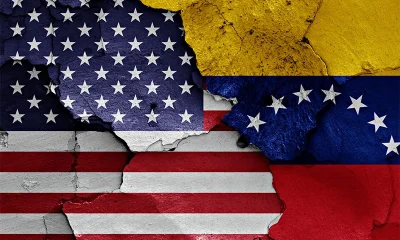
 Opinion6 days ago
Opinion6 days agoAmerican rulers’ hatred for Venezuela and its leaders
-

 Business19 hours ago
Business19 hours agoComBank advances ForwardTogether agenda with event on sustainable business transformation
-

 Opinion4 days ago
Opinion4 days agoRemembering Cedric, who helped neutralise LTTE terrorism
-

 Business4 days ago
Business4 days agoCORALL Conservation Trust Fund – a historic first for SL
-

 Opinion3 days ago
Opinion3 days agoA puppet show?
-
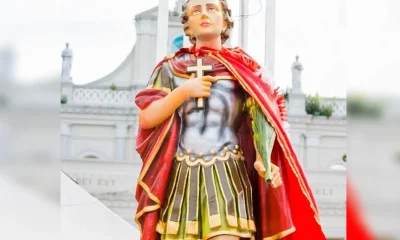
 Opinion6 days ago
Opinion6 days agoHistory of St. Sebastian’s National Shrine Kandana
-

 Opinion19 hours ago
Opinion19 hours agoConference “Microfinance and Credit Regulatory Authority Bill: Neither Here, Nor There”













